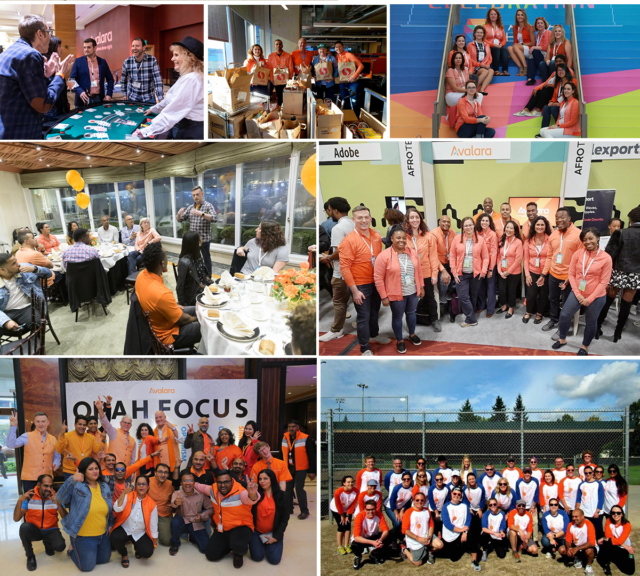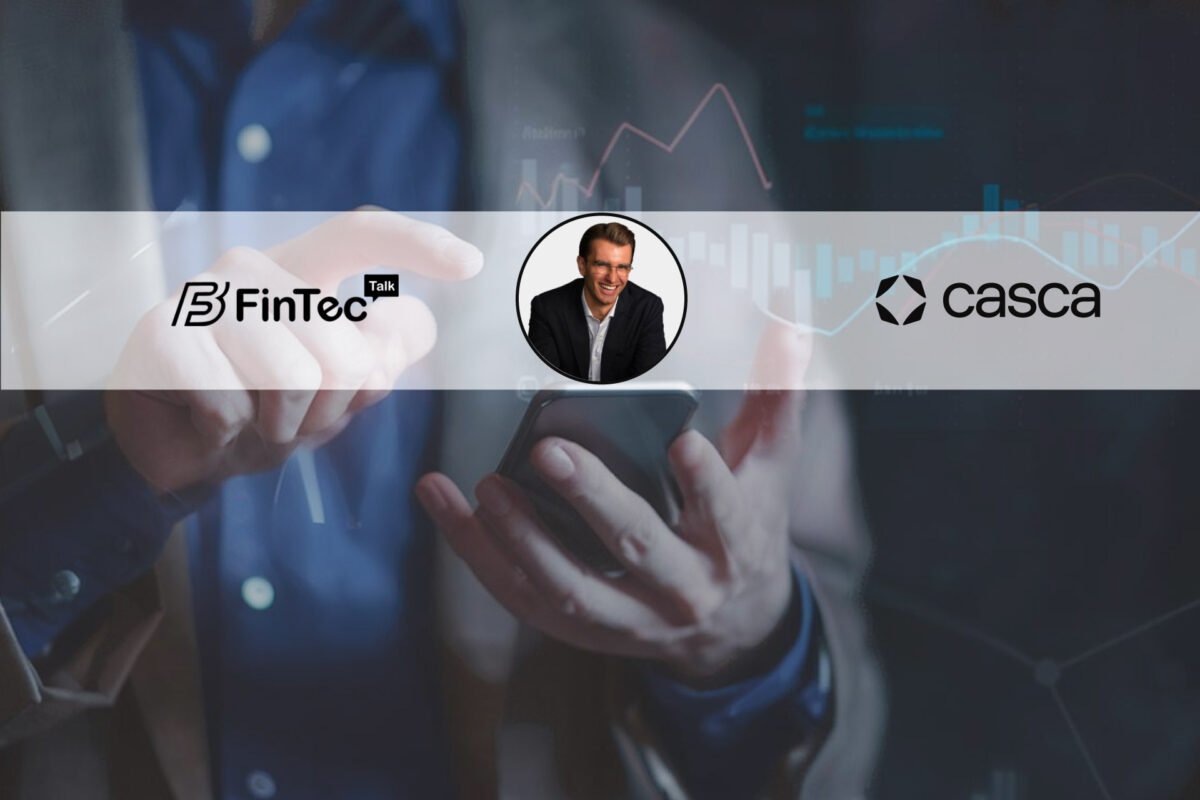Avalara’s CFO, Ross discusses the benefits of tax automation and the newer trends surrounding tax that are emerging as we near entering 2021.
1. Tell us about your role at Avalara?
As CFO, I run all aspects of the financial operations at Avalara including accounting, financial planning, analytics, internal audit, client payments, and corporate finance functions around the capital markets and investor relations. My teams are responsible for everything from ensuring timely and accurate financial reporting to modeling our businesses and product lines to facilitate operational and financial decision making, which allows us to move faster and make well-informed decisions. My background in finance, accounting, and general management, as well as my investment banking career advising companies on strategy, M&A, and corporate finance has played an instrumental role in honing the leadership and operational skills necessary for my role at Avalara.
2. Can you tell us about your journey into this market?
I began my journey into financial and operational leadership roles at VIACK Corporation, a web collaboration software company, where I was actually one of the very first employees there. I held many different leadership roles there before leaving the company to pursue an MBA. After graduation I joined Credit Suisse as an Associate, and later Vice President, of investment banking, where I focused on providing advisory and corporate finance services to enterprise software companies. Following my time at Credit Suisse, I joined Goldman Sachs as a Vice President and later Managing Director in its technology investment banking division in San Francisco where I also focused on advising enterprise software clients, including Avalara.
I loved investment banking and was progressing nicely, but I was ready to take my next challenge and was fortunate enough to have Avalara as one of my clients and led the company through its IPO in 2018. I wanted a new challenge and having known Avalara for more than six years and the long-term market opportunity of the company, I knew it checked all of my boxes for the type of company to which I wanted to transition. If you are going to go from banking where you cover many companies to joining a single company, you certainly have to believe in the company, the team, and the long-term value-creation opportunity. I was a huge believer in Avalara and was ecstatic over the opportunity to join the company.
3. How do you think technology is upgrading the financial industry?
When it comes to financial operations, automation not only makes closing the books simpler, but provides a range of benefits, like data-driven insights, risk reduction, business-process management, and more to provide additional value to the business.
From billing and invoicing to bookkeeping and payroll, and most importantly, tax, there are a number of business functions and applications within the finance department that have been radically changed by automation and improved the way companies use financial technology. With teams becoming more disparate and more customers making purchases online, finance technology solutions have become necessary to keep business functions up and running in the short-term and set them up for success.
In fact, Avalara recently partnered with Zuora to survey hundreds of finance professionals in the United States and abroad to determine the extent of COVID-19’s impact on finance professionals and understand how their technology priorities have changed in the wake of the pandemic. 46% of those surveyed noted that finance automation technologies, like ecommerce platforms, subscription billing services, and tax compliance software, have been very helpful in handling changes associated with the pandemic.
4. How do you think businesses are being empowered with tax automation?
Tax compliance and reporting regulations are changing around the globe at a rapid pace. From economic nexus legislation in the U.S., which allows states to tax sales made in their jurisdiction by remote sellers, to digital tax and near real-time tax reporting internationally, these changes are forcing businesses of all sizes to determine the best measures to minimize the added compliance risk they’re facing. Historically a manual task, tax compliance has been managed by individuals in finance teams, outsourced to accounting firms, or by business owners themselves for centuries, which costs businesses countless hours of personnel time and money spent on operations that provide no value to customers. And, despite the increased complexity and obligation placed on businesses by compliance, many are still managing tax with nothing more than a web browser, and a spreadsheet.
By leveraging technology to automate compliance, businesses can begin looking at compliance not only as a regulatory requirement, but as a channel to increase efficiency, save money, and more effectively serve customers. If you think about modern businesses, most are already using a range of financial tools to run their businesses. From point-of-sale systems to e-commerce platforms to digital marketplaces, businesses are managing a growing amount of data– from both customers and products– across numerous channels and systems. Automated cloud-based tax compliance solutions integrate across these disparate business systems, which creates a centralized hub for data aggregation in addition to accurate tax calculation, which helps businesses manage compliance and, ultimately, focus on serving their customers better.
5. What is the number one mistake companies make when it comes to taxes?
The biggest mistake companies make when it comes to managing tax compliance is sticking with the status quo and relying on manual processes like spreadsheets, which is not reliable in a digital world. The rapidly changing sales tax landscape has placed more compliance obligations on businesses than ever before and the patchwork of economic nexus laws by states in the U.S. alone is enough to burden even the most sophisticated business.
Take a small clothing retailer that has a storefront in Seattle, but sells to customers in more than 20 states online. Not only does that retailer have to manage their sales tax obligations where they have physical presence in Washington, but they are likely triggering economic nexus sales tax obligations in several of the states they sell into. If this retailer is trying to manage their sales tax manually on top of running an omnichannel business, they will likely spend countless hours and funds managing a requirement that provides no value to their customers. Manual compliance in a digital world is absurd, so the biggest mistake one could make is fail to automate.
6. What industries are most at risk right now when it comes to tax nuances and changing regulations?
Tax and compliance regulations are constantly changing and touch nearly every business and industry. However, given the pandemic and more shopping being done from home, ecommerce businesses are in a unique position when it comes to compliance. While an increase in business is never a bad thing, many retailers could be finding themselves with significant tax risk in the future due to the rapid increase in sales today. Businesses that have ramped up sales through online channels during the pandemic are likely to have unknowingly triggered new economic nexus obligations. With an online-first holiday shopping season approaching due to the pandemic, businesses will be focused on elevating their online customer experience and preparing for the influx of sales. For businesses that don’t have the processes and technology in place to manage changing sales tax obligations in real-time, a boost in ecommerce sales can make this task extremely time-consuming and costly to manage, while also putting their business at risk for future audits.
Avalara conducted a survey of businesses earlier this year to gauge how compliant they are with economic nexus laws more than two years since they first went into effect. Only about half of businesses surveyed stated that they have implemented all changes required by state economic nexus laws. With states facing significant budget shortfalls, ecommerce businesses selling into multiple states could become subject to increased enforcement and audits.
7. Can you explain to us in detail about how Avalara AvaTax works?
Avalara AvaTax is a cloud-based sales tax calculation, returns, and exemption certificate management solution that is designed to integrate with numerous business and retail applications to provide real-time automatic tax rate lookup, calculations, and sales tax returns and liability remittance. AvaTax is a good fit for businesses and retailers of any size, as well as accounting professionals that currently handle sales tax calculations for their clients. AvaTax offers prebuilt API integrations with more than 700 enterprise resource planning (ERP), ecommerce, point of sale, customer relationship management (CRM), accounting applications, and other business systems. AvaTax currently supports sales tax calculations and returns in more than 15,000 sales and use tax jurisdictions in the U.S.
8. What are some of the trends related to taxes that businesses should be mindful of heading into 2021?
Businesses should be mindful of many trends related to taxes, including the evolution of economic nexus and marketplace facilitator legislation, increased government regulation and enforcement, and expanded taxability. Following the Supreme Court decision in 2018 that allowed states to impose tax obligations on businesses selling into their state, regardless of physical presence, economic nexus laws spread rapidly. Nearly every state has varying effective dates, exemptions, and thresholds forcing businesses of all sizes and industries to navigate an ever-changing maze of compliance. Additionally, many states are introducing marketplace facilitator legislation that requires marketplaces, like Amazon, Etsy, and more, to collect and remit sales tax for their third-party sellers. While the burden for marketplace transactions is placed on the marketplace itself, businesses are ultimately responsible for knowing which marketplace collects and remits on their behalf (and which do not) to make sure that they are accurately calculating and remitting their tax returns.
States are looking for creative solutions to an ongoing pandemic and economic recession. Unlike the federal government, most must balance their budgets and thus will need tax revenue to pay for essential services and support programs. As a result, increased enforcement of sales tax laws, like economic nexus and marketplace facilitator laws, could become an ideal practice for taxing authorities as they continue to battle the pandemic and balance their budgets. Similar to increased enforcement, many states — particularly those most reliant on sales tax revenue — could also look to broaden sales tax to exempt goods and services and enforce compliance of remote sales laws. From digital goods to groceries to services, state and local authorities are eyeing new revenue streams. For example, the state of Maryland attempted to tax digital advertising earlier this year and localities in Indiana and Texas are pursuing litigation that would allow them to impose franchise fees on streaming services.
9. What do CFOs want from their CTOs/technology department to be successful today?
As we continue to evolve from a single-product U.S.-centric company to a multi-product global company, the finance team must scale to support a more complex and global business. This means we are continuously evaluating, adding, and upgrading our financial systems, business processes and control framework. So much of this depends on technology – the software systems that automate and run our business as well as the information systems that support analysis and real-time decision making.
Because technology and automation have become critical tools for finance teams, working hand-in-hand with technology departments to identify the best technology for the company is critical. Our CTO and I work closely to identify ways that we can automate and secure our business operations so that we can scale as efficiently as possible.
10. What advice would you give someone who is a newly appointed CFO?
Invest the time and energy to deeply understand your business at the lowest level of operations. Having strong finance and accounting experience will fall short if the CFO doesn’t deeply understand how the business functions and the key drivers of performance.
A CFO needs to have a grasp on business operations so that they can model the inputs and outputs in a way that allows peers to gain an edge on how to drive and optimize the business.
I would also recommend that they invest time in building deep relationships with the company’s broader executive and leadership team. At the end of the day, achieving alignment across the aisles is more than half the battle in the pursuit of success.
11. How do you prepare for an AI-centric World?
Avalara has embraced AI with open arms. Last year, we acquired Indix to expand our use of AI and other emerging technology to manage and maintain product and tax codes on a global scale. We know that the adoption of AI and automation are inevitable as illustrated by the need for the technology when it comes to compliance. Avalara has made strides in recent years preparing our systems to be a cloud native environment so that we have the flexibility to scale alongside new technologies.
12. Can you tell us about your team and how it supports you?
I feel lucky to have such a strong and dedicated team. Our finance team includes more than 100 professionals globally, and I have six direct reports who support me in running all the major functions of the organization, including accounting, financial operations, financial planning and strategy, global client payments, internal audit, and investor relations.
13. Which book are you reading these days?
To be completely honest, I took over as Avalara’s CFO on April 1st amid an unprecedented pandemic. Add to that being a husband and father of two young girls and I find that my plate has not spared the room to read these days. Prior to all of this I re-read, for possibly the 7th time, a book I recommend to all of you – “How to Win Friends and Influence People” by Dale Carnegie.
14. We have heard that you have a very joyful work culture, we won’t mind having a look at some of the pictures?


15. Can you give us a glance of the applications you use on your phone?
I try to stay as connected as possible through my work applications like Microsoft Outlook and Slack. On a more personal level, I frequently use Yahoo! Finance, YouTube! (for learning), Spotify, Nest (because my little one is always breaking the rules), and I hope to soon be regularly using the Peloton app for exercise at home.
For more such Updates Log on to https://fintecbuzz.com/ Follow us on Google News Fintech News




